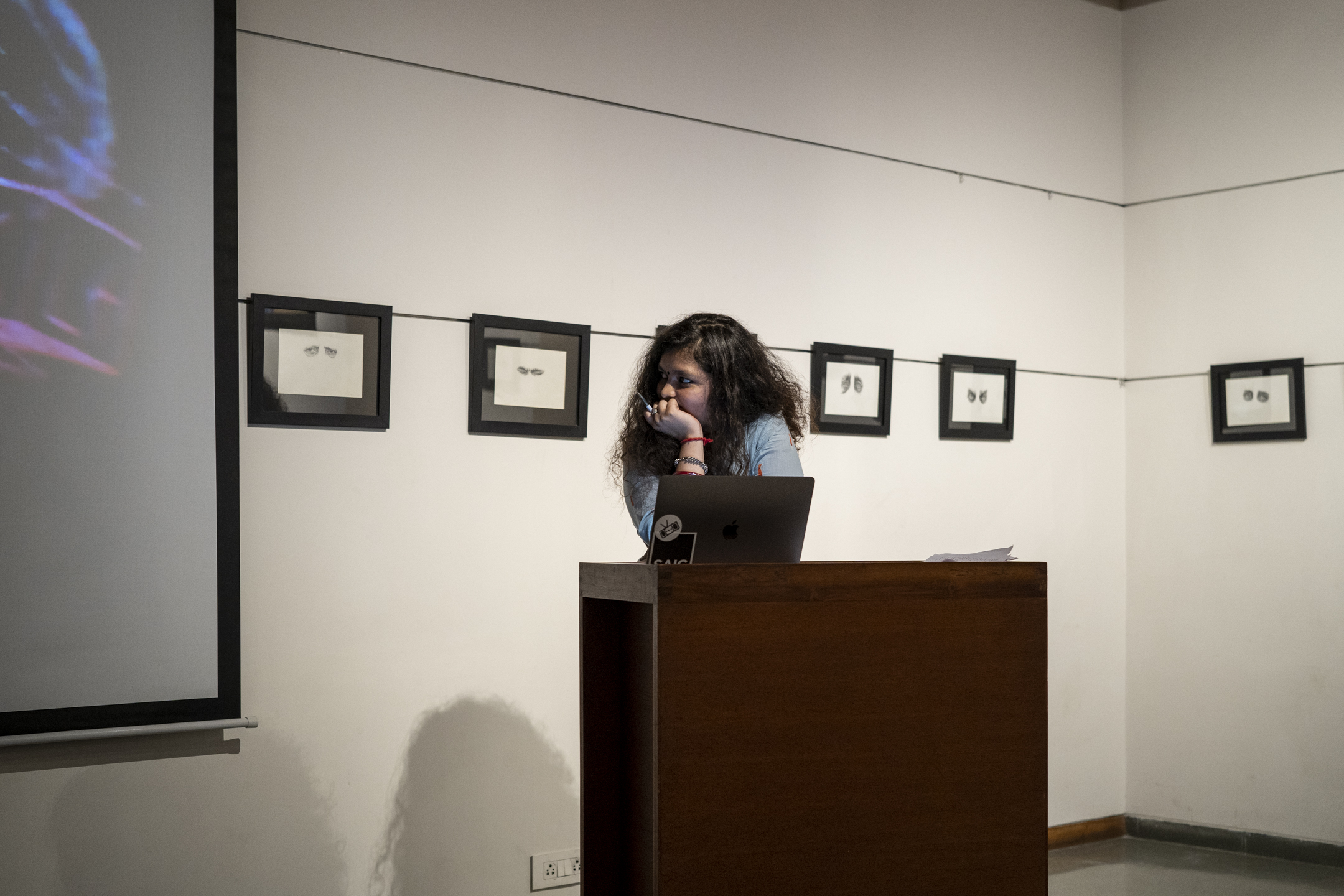On Monday, July 6, U.S. Immigration and Customs Enforcement (ICE) released new guidelines mandating that international students leave the country if their school operates fully online for the fall semester. The news, which was delivered without warning at the precise moment that many colleges were deciding how to restructure learning for the fall, has left students and administrators alike distraught. While some colleges are planning on allowing some or all students to return to campus in the upcoming year, others have moved to completely online instruction so as not to further the spread of COVID-19. Many international students now face an impossible set of circumstances: if their campus opens fully or partially, they can return and potentially get sick, and if their school remains online next semester, they must leave the United States entirely.
“I feel like I am walking on eggshells,” Constanza Fruns Landea, an international student from Chile, told VICE. “I can just wake up tomorrow with the news that I will have to give up my dream and go home.”
Landea’s despair is felt by many foreign students. ICE’s decision has put financial stress on many students who are now scrambling to buy international plane tickets in addition to paying their housing and school costs. As international travel continues to be restricted, many of the students are worried they will not be able to make it back to their home countries if they can’t continue their education in the U.S. Even if they are able to travel, they also risk potentially bringing COVID-19 to their home country or infecting their friends or family. Many students also feel that the quality of education abroad will be diminished for a number of reasons—some students will be forced to take their classes in drastically different time zones, for example, or from areas with poor internet or that are otherwise not conducive for academics. ICE did not provide a rationale for their decision, and many students are struggling to understand why this choice was made beyond pure xenophobia.
Ten foreign students told VICE how they feel about the future of their education in the United States.
These interviews have been lightly edited for length and clarity. Some photos and last names have been omitted due to the students’ privacy concerns. All photos are courtesy of the students.
Danielle, incoming student at Parsons School of Design from Canada

ICE provided little notice to international students who are currently in the USA, including students who have already applied for their visas for the fall semester. I received no warning that they would not be accepting our applications. Comical, because I already had paid my SEVIS fees for my I-20 application. Will this $300 amount be refunded? Probably not. I anticipated there would be some campus closures, but I wasn't expecting ICE to completely deport students studying in the USA—there are students from war-torn countries, countries with weak infrastructure that can't support adequate internet access, and yet we're expected to go to our home countries to continue paying $50,000 for a semester that is completely based online. Now, students who are looking to stay in the USA, or to have their visas accepted must transfer to a school that is proceeding with in-person classes. It's July. Who in god's green earth would accept a transferring student with the semester set to begin in August? Nevermind the cost to apply or the cost of reapplying for a visa that has since been rejected, relocation fees, and other expenses that have piled up in the middle of a pandemic. It's completely disgusting.
Valentina Luketa, Ph.D. student at the University of Indiana, Bloomington, from Croatia

My feeling is that international students have been targeted and sacrificed for the purpose of forcing universities into complete reopening. Personally, I am scared, and to be honest there’s no way I can leave the country on such a short notice because flight tickets are either unavailable or unaffordable for me. My studies have already been interrupted by the outbreak of COVID-19 in the U.S. Now ICE’s decision is just creating more uncertainties for my research. For example, leaving the country means graduate workers are unable to get paid because they are not allowed to be instructors from outside the country. Losing legal F-1 status also means losing the access to OPT [Optional Practical Training] and H-1B, which endangers one’s entire career plan. So far we’ve heard nothing from the university. The Indiana Graduate Workers Coalition sent out a statement and a letter to the Vice President of International Affairs on July 7th, and is awaiting a response.
Ethan, Stanford University student from the Philippines
I’m pretty scared about ICE’s plan, in particular because President Rodrigo Duterte recently signed the Anti-Terrorism Bill into law in the Philippines, broadening the government’s power to detain and prosecute folks associated with terrorism. In the U.S., I work with Filipino American activists to organize against Duterte’s campaigns, and have participated in several protests and actions condemning his administration, including advocacy for the Philippine Human Rights Act. ICE’s plan may force me to return home in a time I don’t feel safe at all, since I could easily be targeted by the Duterte regime for my activism.
Abner Barbosa, Michigan State University student from Brazil

To me, this is at the same time infuriating, saddening, and expected. For a while now I’ve been expecting ICE and the Trump administration to use the pandemic to tighten immigration requirements and make it harder for people to come back or leave the country all together. I am currently in Brazil, so my plans would be to move back to the U.S. to continue my education, and I am very worried this might interrupt my studies. There is also the fact that should I decide to take a semester online, which would be very hard to do back home due to unreliable internet and a very anxiety provoking environment, that would affect my ability to apply for an OPT once I graduate.
Nace Zavri, Harvard University student from Ljubljana

Honestly, it feels horrible. Most of my life is in Massachusetts. My partner is an American citizen, so she can't come to Europe, and probably won't be able to any time soon. Academically, being stranded without campus facilities would be devastating, and would seriously make me reconsider even continuing on an academic career path. But I am by no means in a situation as horrible as some other students, as I at least have another home to return to, and am able to do so legally.
Constanza Fruns Landea, Hult International Business School student from Chile

I feel like I am walking on eggshells, that I can just wake up tomorrow with the news that I will have to give up my dream and go home. It makes me angry that if this indeed happens, everything that me and my family have invested and sacrificed will be for nothing. And most importantly, I’m not surprised a bit, because it feels like it was a matter of time that this presidency came up with something that would hurt, again, international people.
Emil Mella, incoming graduate student at the City University of New York from the Dominican Republic
It’s all horrifying. I could be saddled with a student loan, a lease, and no job while being kicked out of the country at a moment’s notice. There’s no plan that makes it easier or not financially ruinous to uproot the last five years of a life I’ve built here. U.S. policy, amidst a renewed spike in coronavirus strong enough to force universities to close, is to export people from infection centers all over the world in mass self-deportations? It’s maddening.
Tara Bassi, incoming Harvard University student from India

I am confused more than anything. I don't see any upside or benefit to this decision. It is incredibly scary to enforce and encourage so much international travel suddenly. I am also worried about timezone accommodations as I will be pretty much nocturnal on Indian Standard Time. If my school shifts to a hybrid or in-person system, domestic travel will also give rise to infections and affect students and professors. Either way leaves us defenseless.
M.K, student at Northwestern University from Japan
As an F-class holder for the bulk of my life, I was always living in fear of deportation. Yes, even if I have a valid visa. Even those who are naturalized citizens live in fear of deportation. It’s astounding just how those who come in regular contact with people like us—school admin, faculty, even international office staff—don’t really understand the immigration processes at all. I’m someone who usually sets a plan, so I do have a plan to move for a term if I absolutely need to, but this will be a financial hardship for me. As I am a Ph.D. student in a biology lab, I will have no access to my equipment if I am to leave the country. My school is currently offering platitudes. But so far, nothing real.
Darshita Jain, School of the Art Institute of Chicago student from India

I have pulmonary fibrosis. This, in a very twisted way, makes me feel lucky to be able to quarantine in the last three months. How twisted is that? How can a student choose between exposure and keeping their visa status intact? It is hard to be an international student here anyway. But with this decision, people will drop out. It is an all-around problematic thing to expect any student living so far away and alone without any family for emotional support to make this decision. We are stuck. It feels like an attack.
Follow Mary Retta on Twitter.
from VICE https://ift.tt/3ffiAje
via cheap web hosting
No comments:
Post a Comment